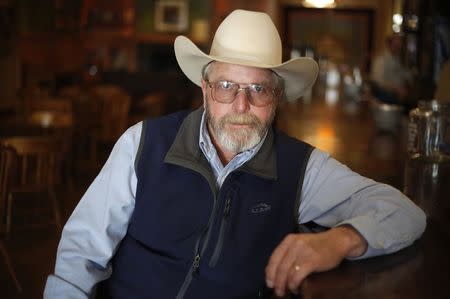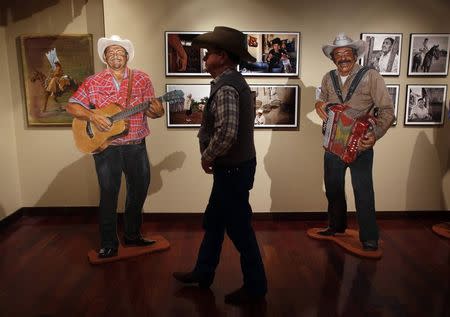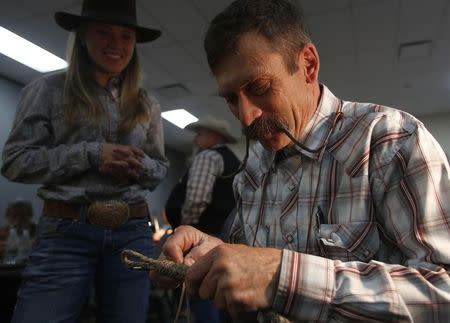Ode to the range: Cowboys take to prose to celebrate U.S. West
By Mary Papenfuss ELKO, Nev. (Reuters) - When long-time bronc rider Paul Zarzyski needed to rest his aching bones after an adrenaline-charged stint on torquing horseflesh, he often turned to the last thing most people would associate with cowboy life: writing poetry. “I kicked that bucker crazy, now I’m laid-back lazy,” the Montanan writes in his poem “Riding Double-Wild.” He has left the rodeo circuit behind, but not the poetry, and it turns out lots of cowboys are just as fond of verse as he is. Zarzyski is one of scores of writers gathered this week for the annual Cowboy Poetry Festival in Elko, Nevada, nearly in the middle of nowhere, which is just how the locals like it. The ramshackle town with casinos, the Stampede Motel and coffee shops that play Hank Williams Jr., is sprouting an unusually large number of raw-boned guys in ten-gallon hats who call women “ma’am.” Both veteran poets as well as newbie rhymers are welcome at the festival, which features open mike nights, live music, and workshops on Western crafts and skills, including silver-smithing, ranch cooking, and making pulled-wool saddle blankets. Doug Groves, who sports a large handle-bar mustache, is teaching a four-day workshop on rawhide braiding, a beautiful macramé-like treatment of equine rigging introduced to the West by the Spanish. Groves learned his skill from fellow cowboys in bunkhouses while working for area “cow outfits.” Student Bobbie Yokum, who is married to a one-time team rodeo roper, has traveled to the workshop from California for the last 12 years. “My technique improves bit by bit, and I’ve fallen in love with the countryside,” she said. But the heroes of the gathering are the poet lariats … er, laureates … like fifth-generation California cattleman John Dofflemyer who rides herd in the southern Sierra foothills. He rises at 3 a.m. each day to write until the sun comes up. “It’s something I’ve done all my life. If I didn’t do it, I wouldn’t be whole,” he said. His poetry is fueled by his love of work profoundly connected to the land, which he believes is the heart of the cowboy soul. “The land is me and I am the land. Its health is as important as my own,” he explained. The festival ropes in local ranch families as well as city slickers from hundreds of miles away seeking that Western soul expressed in poetry. “The spirit of the West is alive. It comes from the wide open spaces that still exist out here,” said Zarzyski, who calls the festival the “cowboy Woodstock.” John Collett, a local life-insurance salesman and festival volunteer, agrees. He spent 12 summers as a boy living with an Elko family working on their ranch and “buckarooing” — rounding up cattle — on his little black mustang Tramp. “Those were the best years of my life,” he recalls. “You’ve seen the land around here, the space and beauty,” he said. “It does something to people.” (Reporting by Mary Papenfuss; Editing by Jill Serjeant and Lisa Shumaker)






